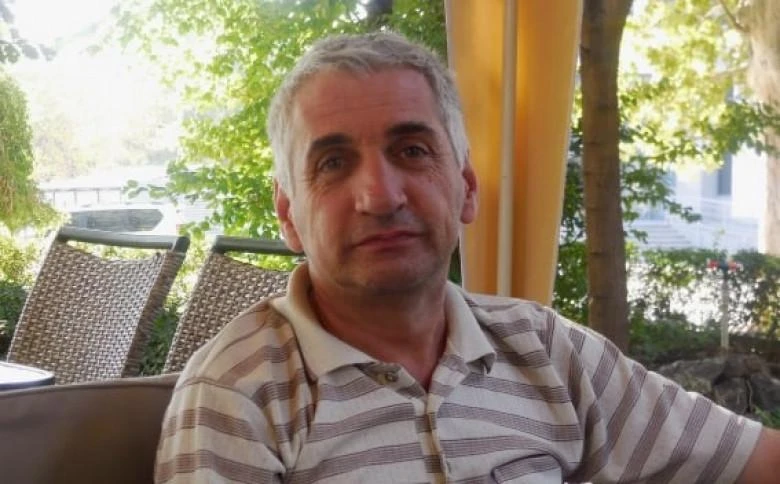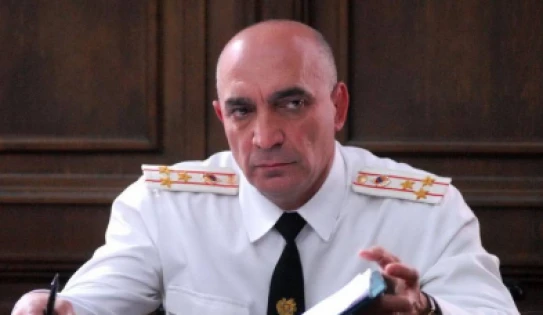"Fact" daily writes:
The year 2024 is coming to an end, and perhaps it is time to summarize the developments in the domestic and foreign policy field. Political analyst Ruben Margaryan considers the movement led by Bagrat Srbazan to be the most important domestic political event of the past year.
"It has faded now, but, in my opinion, it was important to the extent that it showed the revolt of at least a significant part of the society against the policy pursued by the ruling team on the foreign front, we are talking about the policy of meeting Azerbaijan's demands.
This movement showed that there is that protest among people, people are ready to go out on the streets again and present their demands," Margaryan said in a conversation with "Fact". The analyst emphasizes that it is very difficult to expect domestic political developments separate foreign policy from domestic. "The major upheavals occur when external challenges emerge. Therefore, expectations from domestic politics are related to external challenges," he adds he: What did we have in the field of foreign policy in 2024?
"The same process that has been going on since 2018. After the change of power, there were first reports that Azerbaijan has advanced its position in the Nakhichevan region even Bolton's famous visit to Armenia, etc. That whole process, that Armenia had to make some concessions step by step, has also continued In the demarcation process in 2024, when Armenia satisfied Azerbaijan's demand, it handed over some territories in the north of Armenia, naming it as demarcation.
What will happen in 2025? Those same processes are in force. The Armenian authorities recently said that there should be a new section for demarcation, there is no change in their approach, that is, they will delimit where Azerbaijan says. Due to these processes, there will also be internal developments, that is, the more acute the challenges we face, the stronger the internal reaction will be.
In addition to demarcation, there are other demands: Turkey and Azerbaijan regularly talk about the "Zangezur Corridor", talks about the Constitution continue. are ready to give up that condition for the sake of signing some paper with Armenia.
The whole chain of demands remains, other problems are regularly added: demilitarization of Armenia, "return of refugees", etc. Perhaps there will be a little peace before 2025. It is related to the fact that it is tense in other regions I have the cases of Syria, Ukraine. Now maybe it is not so appropriate, I mean not to us or to Azerbaijan, but to other players, but sooner or later these issues again It is difficult to say what the Armenian authorities will do to explain why they should take the next step to meet any of these demands.
History will be brought into the middle, social psychology, our anti-state thinking, etc. I predict that it is a very difficult situation to predict, the situation can change at any moment, up to, for example, the extraordinary elections," says our interlocutor. We are discussing the next year in Armenian the nature of relations and contacts between Armenia and the West. in the region.
When the peacekeepers left Artsakh, the process of separation from the CSTO began to be more direct. They say that the CSTO did not make a statement that Azerbaijan is an aggressor. , that he is an aggressor, returns territories. Is there no logic in that? Of course, CSTO avoids such statements. says: we can help you in a different way - technically, with exercises, monitoring, but don't demand something that the other side can demand later.
The Russian relations are in the middle. I think that now is a period when Nikol Pashinyan wants to take a more drastic step or not. This is due to the change of power in the United States. There is a great expectation that after that change of power the general tension may go towards relaxation.
If that trend continues, there may not be a problem of final withdrawal from the CSTO. At the moment, when the US president is not there, we see that there is a tendency to increase the pressure on Russia, so that it will be easier to negotiate later whether to take drastic steps and finally withdraw from the CSTO, or to delay, to see what will happen after January 28, how the events will develop.
In terms of relations between Armenia and the West, everything is just at the level of words. The West gives us many nice promises, most of which are not fulfilled, the only thing that happens is that they periodically give some money through loans or grants so that the Armenian government alleviates the internal challenges to those displaced from Artsakh. give money, do some construction, organize festivals so that there is no internal tension. The West does not give real aid, they announced that we will not allow it in Karabakh ethnic cleansing, but they allowed it, it passed, it went away.
They can't even take any real steps on the matter of our prisoners. The authorities understand all that, but it is probably more convenient for them to try to solve the problems with the money of the West. What will be the end of it, the West is unclear We don't see anything else realistic, Georgia can be a good example for us, it became a candidate member of the EU, but they put such demands on it that it took a step back," he says. The analyst: Will the same policy continue with regard to Artsakh?
"Something can change only if the war in Ukraine ends and stability in the world increases. When a stable situation is created in the world, it is possible that Armenia will be able to raise some issues," concludes Ruben Margaryan.
Lusine Arakelyan


